#Une femme artiste
Explore tagged Tumblr posts
Text



Niki de Saint Phalle, pour le plaisir et en pensant à ses NANA
12 notes
·
View notes
Text


Louise Abbéma (1858-1927), Jeune femme dans un jardin, fin du XIXe siècle, huile sur toile.
[Young woman in a garden, end of the nineteenth century, oil painting]
Louise Abbéma se fait connaître par le portrait qu’elle exécute de son amie Sarah Bernhardt en 1875. Elle réalise des portraits mondains qu’elle expose au Salon mais aussi des panneaux décoratifs et des illustrations. [Musée des Beaux-Arts de Dijon]
#louise abbema#woman artist#jeune femme dans un jardin#young woman in a garden#huile sur toile#oil painting#fin xixe siècle#end of 19th century#musée des beaux-arts de dijon
7 notes
·
View notes
Text
MINORS & AGELESS BLOGS, DO NOT INTERACT!!

Imagine going to a pride parade and bumping into Ghost.
He's obviously not wearing his mask or his gear because he's just out and about as a civilian, so you can see his scars and tattoos. He's intimidating even if you're the same height or taller, but there's something about him that draws you in.
So you simply apologize for bumping into him and then you compliment his tattoos, saying they look cool. He looks taken aback because people are usually too intimidated by him to compliment his tattoos, which gets him talking to you about the wonderful tattoo artist who did the tattoos.
You two are so engrossed with your conversation that you end up walking with him throughout most of the pride parade, asking him all sorts of questions about the symbolism and meaning of his tattoos.
As the day turns into night, you invite him to come with your friends to a nearby gay club and Ghost surprisingly takes the offer. He doesn't dance in the club, but he enjoys watching you dance.
Eventually, someone comes up to you and tries flirting with you despite you being uncomfortable, so Ghost comes over and scares off the guy. He's so close to you now that he's on the dance floor, still not dancing along to the beat of the music because he had just come to help you out.
And you pull him close when he tries to go back to where he was standing and watching you, practically begging him to dance with you as a way for you to repay him for helping you out.
Ghost reluctantly agrees, mostly because his body warms when his hands settle on your waist. So he dances with you, following your lead.
One dance turns into several, the rest of the crowd seemingly to melt away as you two dance against each other. You both take turns twirling the other, just doing whatever dance moves the music calls you to.
When it's two in the morning, you and Ghost stumble to his shabby flat because your flat is too far away and his is closer. You two collapse onto the bed together, too exhausted to do anything but sleep.
You wake up in the morning to him spooning you, holding you tightly.

Separator made by @une-femme-de-lettres
Reblogs are welcomed & appreciated! Asks are open, feel free to pop in and request something! (Check the rules in "Rules for Requesting NSFW" before requesting.)
#simon ghost riley#simon riley#simon ghost#ghost riley#ghost cod#simon ghost riley x male reader#simon ghost riley x reader#simon riley x male reader#simon riley x reader#simon ghost x male reader#simon ghost x reader#ghost riley x male reader#ghost riley x reader#ghost x male reader#ghost x reader#call of duty#cod modern warefare 2#cod mwii#cod mw2#cod#just wanted to do something for pride month#:)
176 notes
·
View notes
Text


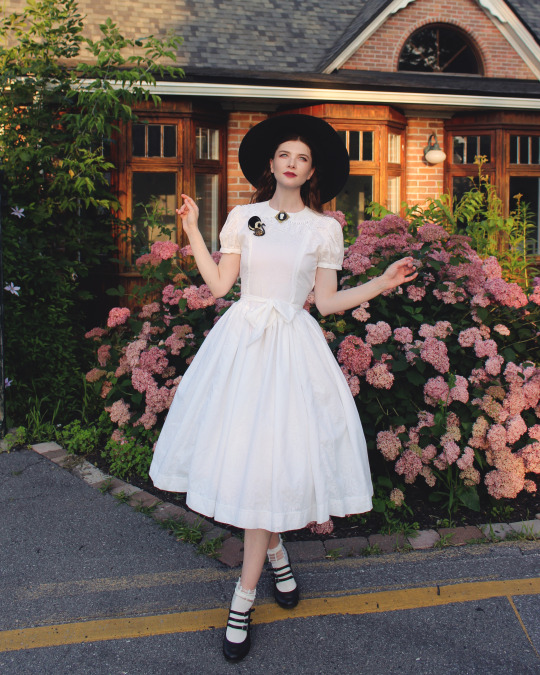

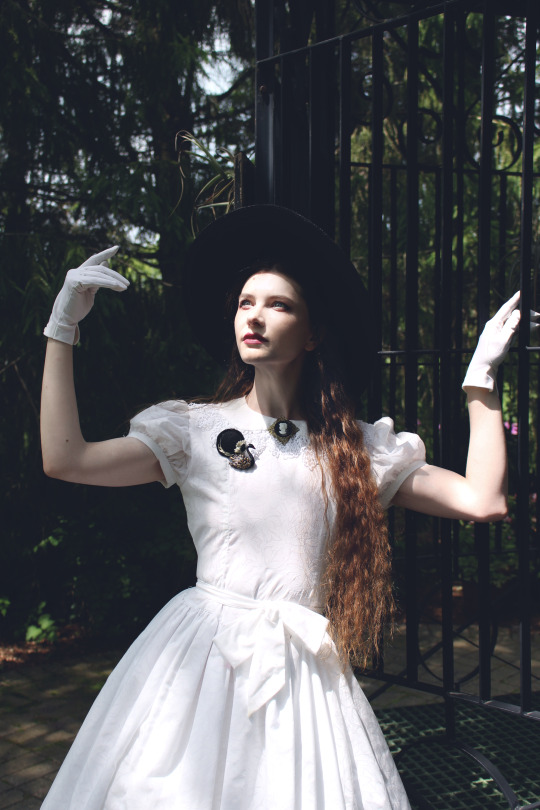

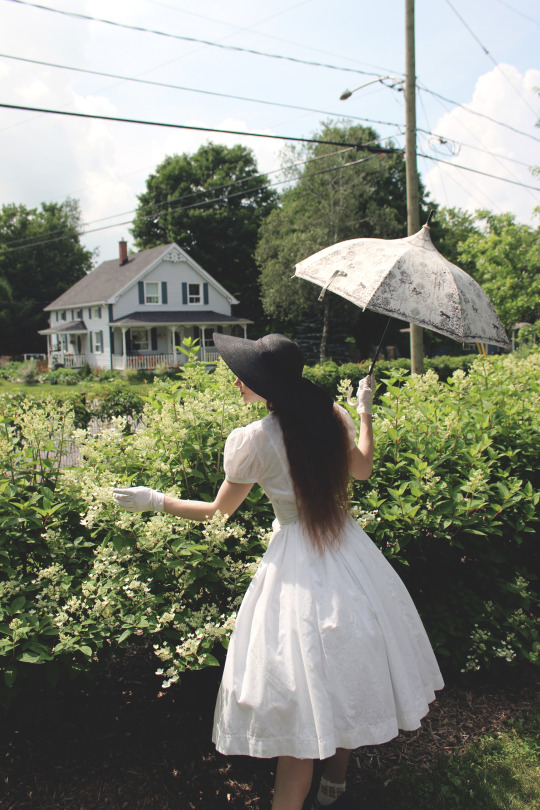

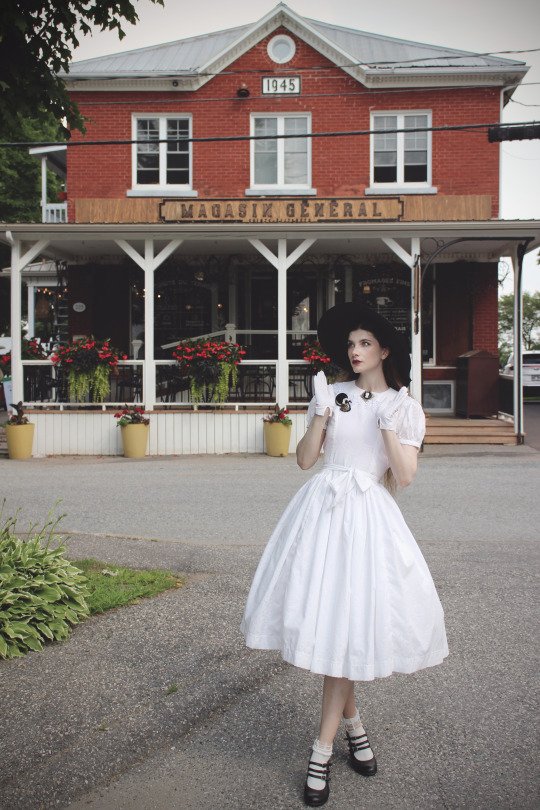
Parc Marie-Victorin, Sainte-Élizabeth-de-Warwick et vieux Belœil en une belle (mais épuisante!) journée de juillet
Outfit rundown Dress: vintage (it's a children's dress lol) Hat: vintage Vogue Gloves: vintage Shoes: old Hush Puppies Parasol: Axes Femme Jewellery: vintage and from artists in Japan (no IG)
#fashion#vintage#vintage style#vintage fashion#true vintage#retro fashion#retro style#vintage aesthetic#retro aesthetic#vintage dress#vintage hat#long hair#garden#white dress#50s fashion#second-hand fashion#sustainable fashion#cottagecore#countryside#québec#fannyrosie#fanny rosie
735 notes
·
View notes
Text

Femme du monde...femme africaine...
La beauté de la femme africaine est une beauté qui transcende les frontières et les cultures. Elle est universelle et intemporelle. Elle est une inspiration pour les artistes, les poètes, les musiciens et les écrivains du monde entier, qui ont cherché à capturer sa grâce et son charme depuis des siècles.
En fin de compte, la beauté de la femme africaine est une beauté qui doit être célébrée, honorée et respectée. Elle est une force vive et inspirante dans le monde, une incarnation de la vie, de l'amour et de la dignité humaine. Que nous soyons africains ou non, nous pouvons tous être inspirés par la beauté de la femme africaine et apprendre de sa force et de sa grâce.
55 notes
·
View notes
Text

Unknown Artist French Revolutionary, Editor of the Radical Newspapers "Journal de la Liberté de la Presse ("Journal of the Freedom of the Press") and Le Tribun du Peuple (The Tribune of the People) and Leader of the "Conjuration des Égaux" (Conspiracy of Equals), Which Sought to Overthrow the Right Wing Government That Had Overthrown the Jacobins and to Institute a New, Proto-Socialist Society, François-Noël "Gracchus" Babeuf c.1793
"La prétendue supériorité de l'homme sur la femme et la despotique autorité qu'il s'arroge sur elle ont la même origine que la domination de la noblesse." (The pretended superiority of man over woman, and the despotic authority which he arrogates over her, have the same origin as the domination of the nobility).
"C'est la grande propriété qui a inventé et soutient le trafic des blancs et des noirs qui vend et achète les hommes… C'est elle qui dans les colonies donne aux nègres de nos plantations plus de coup de fouet que de morceau de pain." (It is the system of great landed estates which invented and sustains the trafficking of whites and blacks who sell and buy men. … It is this system which in the colonies gives the blacks of our plantations only a blow with a whip and a morsel of bread).
"L'éducation est une monstruosité lorsqu'elle est inégale, lorsqu'elle est le patrimoine exclusif d'une portion de l'association; puisqu'alors elle devient la main de cette portion, un amas de machines, une provisions d'armes de toutes sortes, à l'aide desquelles cette première portion combat l'autre qui est désarmé." (Education is a monstrosity when it is unequal, when it is the exclusive patrimony of one class of the society; because it then becomes the controlling hand of this class, a mass of mechanisms, a provision of weapons of all kinds, with the aid of which the ruling class combats the other, which is disarmed).
"Il faut avancer… parce que le christianisme et la liberté sont incompatibles" (We must advance … because Christianity and freedom are incompatible."
-- François-Noël "Gracchus" Babeuf
21 notes
·
View notes
Text

Le Petit écho de la mode, no. 29, vol. 17, 21 juillet 1895, Paris. 3. Coiffure de jeune femme brune. Ville de Paris / Bibliothèque Forney
Coiffure de jeune femme brune. — Bandeaux ondulés au flou-flou à larges vagues. Racines des tempes simplement relevées et bouffantes ondulées de meme au flou-flou. Un simple chignon tordu derrière formant une sorte de nœud allongé. Voilà la coiffure dénotant bien le goût d’élégance artistique qui caractérise tout ce qui sort de la maison Lenthéric. Le flou-flou est un délicieux petit système extraordinairement remarquable comme trouvaille, avec lequel toute personne peut faire son ondulation, pour n’importe quel genre de coiffure. Sans bandeaux, avec bandeaux pour fillettes, jeunés filles, etc. Ce charmant appareil ne laisse apparaître dans les cheveux que de petits noeuds de rubans. Du reste, dans une prochaine chronique, Mme de Clessy vous parlera en détail de tous les avantages que les coquettes trouveront en se servant de ce petit système qui est breveté dans tous les pays du monde.
Hairstyle of a young brunette woman. — Wavy headbands with a blur and large waves. Roots of the temples simply raised and bouffant wavy even with a flou-flou. A simple bun twisted behind forming a sort of elongated knot. This is the hairstyle clearly denoting the taste for artistic elegance which characterizes everything that comes out of the Lenthéric house. The flou-flou is a delicious little system, extraordinarily remarkable as a find, with which anyone can make their own waves, for any type of hairstyle. Without headbands, with headbands for girls, young girls, etc. This charming device only leaves small ribbon knots appearing in the hair. Moreover, in a future column, Ms. de Clessy will talk to you in detail about all the advantages that coquettes will find by using this little system which is patented in all countries of the world.
#Le Petit écho de la mode#19th century#1890s#1895#on this day#July 21#periodical#fashion#fashion plate#hair#description#Forney#dress#Modèles de chez#Maison Lenthéric#Maison de Clessy
45 notes
·
View notes
Text
【 LES GROUPES* DE HEVENBYRE 】



L’ordre de Dierneleth —
L'ordre de Dierneleth est très ancien : on dit qu'il a été créé par des alchimistes pendant le Fléau Pourpre, dont le but était de mettre en commun leurs savoirs dans l'espoir de trouver un remède à cette pandémie, il y a près de 850 ans. Malheureusement, le Fléau a eu raison de presque la totalité d'entre elleux, mais les dernier.ères survivant.es ont rassemblé leurs écrits et leurs recherches, pour faire perdurer l'ordre de Dierneleth jusqu'à nos jours. Aujourd'hui, il s'est étendu à d'autres disciplines scientifiques : on y trouve des alchimistes bien sûr, mais aussi des médecins, des astronomes, des apothicaires, ou encore des historien.nes, des mathématicien.nes ou des philosophes.
L'ordre de Dierneleth a fondé l'Académie d’Aeswyc, la plus grande et la plus prestigieuse en Hevenbyre. Les membres de l'Ordre s'y rassemblent pour faire des conférences, enseigner, et échanger leurs savoirs et leurs informations. Leur ligne de conduite a toujours été de poursuivre la vérité, et d'éloigner l'ignorance et la maladie. Le gouvernement actuel, dirigé par les Enfants de Wuldorgen, déploient des fonds considérables pour attirer le plus de personnalités savantes possibles à leur botte (mais seulement des hommes), en proposant des financements pour les recherches ou du matériel, dans le but de leur faire dire et leur faire faire ce qui sert leurs desseins. Si certain.es érudit.es se laissent faire corrompre, d'autres s'opposent farouchement à l'obscurantisme des Enfants de Wuldorgen. Celleux-là s'exposent à une arrestation, voire pire.
L’académie d’Aeswyc propose l’enseignement de neuf disciplines, rassemblées dans trois Pavillons (nommés d’après de grand.es érudit.es du passé) : le Pavillon de Husna (Mathématiques, Astronomie, Physique), le Pavillon d'Idmaer (Histoire, Philosophie, Théologie), le Pavillon de Brihtwen (Alchimie, Médecine, Herbologie). La plupart de son corps enseignant appartient à l'Ordre de Dierneleth, mais pas que, et la nouvelle direction de l'Académie a tendance à vouloir écarter les femmes des postes de professorat.
Organisation de l��Ordre
[Nom du métier] de Dierneleth (∞) : une manière de désigner les savant.es membres de l'Ordre.
Organisation de l'Académie
Maître d'Académie (0/1, PNJ) : Normalement élu.e par les Éminent.es, iel dirige l'Académie, coordonne les budgets, les dépenses et les recettes, et représente l'entité académique. Iel a autorité sur le personnel et doit veiller au maintien de l'ordre. C'est ellui-même un.e Éminent.e. Néanmoins, depuis 518, le Maître d'Académie actuel a été placé par les Enfants de Wuldorgen.
Éminent.es (9/9) : Chacun.e des Éminent.es préside une discipline, dans laquelle, bien sûr, iel excelle. Iel est notamment en charge de structurer les enseignements, de choisir les professeur.es qui seront sous son autorité, et, en travaillant avec elleux, d'accepter les étudiant·es.
Professeur.es (27/27) : une manière de désigner les personnes qui enseignent à l'Académie d'Aeswyc.



Mouvement du Withigrin —
Bien que pour le moment constitué d'une centaine de personnes, le mouvement du Withigrin est le plus large mouvement de résistance organisée de Hevenbyre. Il a été créé après le coup d'état par les Enfants de Wuldorgen, lorsque les droits de la population ont commencé à être réduits, quand le pouvoir exécutif s'est montré de plus en plus violent et arbitraire, et quand les inégalités économiques entre les hevenien.nes se sont creusées. Au sein du Withigrin, toute action est bonne pour résister et lutter contre les tyrans : renseignement, sabotage, information des populations, désobéissance civile, etc. Les membres du mouvement du Withigrin doivent être invisibles, et filer entre les doigts de celleux qui veulent les arrêter. Iels viennent de tous les horizons : pauvres, moins pauvres, croyant.es, athé.es, artistes, hevenien.nes ou non, savant.es de Dierneleth, etc. Le mouvement cherche à s'allier à d'autres réseaux à travers le royaume, voire en dehors de ses frontières.
Organisation
Âmes du Withigrin (∞) : une manière de désigner les membres du mouvement.



Milice des Bienheureux.ses —
Très généreusement payée par les Enfants de Wuldorgen, la Milice des Bienheureux est certes composée de mercenaires redoutables, mais leur mission n'est pas de combattre. Recruté.es pour leur talent de manipulation et pour leur besoin d'argent, les Bienheureux.ses s'infiltrent au plus proche de la vie des gens, et utilisent tous les moyens possibles et imaginables pour les convertir au culte imposé par les Enfants, et pour les faire adhérer aux normes de soumission et d'austérité mises en place par l'État. Iels s'infiltrent dans les foyers, les villages et les temples pour déverser la propagande du gouvernement, dissimulée par de la bienveillance ou du chantage émotionnel. S'iels sont amené.es à le faire, iels n'hésitent pas à faire taire les voix qui feraient obstacle à leur travail.
Si une grande partie des Bienheureux.ses sont des membres zêlé.es des Enfants de Wuldorgen, d'autres, dans une situation très précaire, ont été attiré.es par l'appât d'un gain monumental, qui servirait à mettre à l'abri tout une famille.
Organisation
Celui-qui-délivre (0/1, PNJ) : le coordinateur de la Milice des Bienheureux.ses, qui a autorité sur elleux. Il est l'interlocuteur entre elleux et les Enfants de Wuldorgen.
Bienheureux.ses (50/50) : une manière de désigner les membres de la Milice.
———
PRÉCISION : Les rangs les plus élevés dans la hiérarchie de chaque groupe exigeront logiquement une activité un peu plus régulière que les autres. Le sujet sera rediscuté en temps voulu.
*Liste non exhaustive.

#french rpg#projet rpg#rpg francophone#forum francophone#forum rpg#projet forum rpg#rpg fantasy#forumactif#rpg français
14 notes
·
View notes
Text

Anaïs Nin par Guillermo Summers
« André Breton m'a rendu visite. Je me disais que l'atmosphère de ma vie, mes intuitions inarticulées correspondaient à sa sensibilité poétique. Il n'en fut rien. Il était intellectuel. Il parla idées, pas impressions ni sensations. Et il me raconta une histoire de ce qui était le contraire de ce que je m'étais figuré.
Il avait parlé du jeu surréaliste qui consiste à se retrouver à plusieurs pour s'engager dans une action non concertée. Ils prennent le train, descendent n'importe où, un endroit qu'il ne connaissent pas, et attendent que des surprises, des choses se produisent. Ou bien montent dans un autocar et décident tout à coup de rester dans une petite ville, et d'attendre l'inattendu. Il raconte cela avec solennité, davantage comme un roi s'adressant à un auditoire que comme un collègue artiste parlant à d'autres artistes. Il n'attendait pas de commentaires, seulement des auditeurs.
Puis il dit : « L'autre jour, j'ai reçu une lettre d'une femme. Elle avait écrit une lettre très belle. Elle commentait l'importance que j'attache à la « surprise », aux coïncidences, et disait qu'elle aimerait me rencontrer seul sous le pont Royal un soir à minuit. Elle ne voulait absolument pas révéler son identité. »
J'attendais le reste de l'histoire. Breton ajouta : « Je n'y allais pas. Bien entendu.
Pourquoi « bien entendu » ? demandais-je.
Parce que j'ai de nombreux ennemis et que ç'aurait pu être un piège ».
Lorsqu'il vit combien j'étais déçue de son manque d'esprit d'aventure, il ajouta : « J'y allais la deuxième fois, pourtant après qu'elle m'eut écrit. Mais je pris soin de poster deux amis loyaux sur le pont de manière à pouvoir les héler en cas de danger .»
Cette histoire, ajoutée à son manque de goût pour la musique, trahissait ce que je soupçonnais dans le surréalisme, la part qui en est consciente, préméditée et une technique intellectuelle ; elle trahissait l'homme de laboratoire. C'est ce qui m'empêcha d'épouser le surréalisme, de devenir un disciple totalement engagé.
P.377,378
Anaïs Nin « Journal 2 - 1934-1939» Livre de poche
21 notes
·
View notes
Text
Louis! Louis! vien ici please regard ça. THIS is an artist. She has arrived at this award for music videos covered in meat Louis. She is bleeding on the stage! Have you seen her videos? she’s truly une femme provocante. Can you believe the vitriol they speak of this woman? She is known as la mère aux monstres Louis, JE SUIS un monstres Louis! I must have her! Non! I won’t kill her évidemment! She is one deserving of the dark gift! Don’t you agree Louis!? Louis!
#Lestat discovers Lady Gaga performances#and becomes psychosexually obsessed#his mommy issues are triggered by mother monster#i really thought i posted this#but im obsessed with the totally head cannonized friendship i decided they are going to have
297 notes
·
View notes
Text
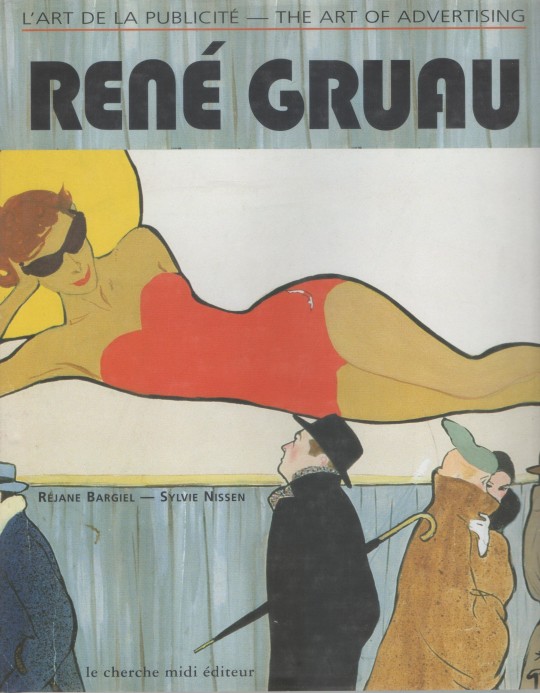

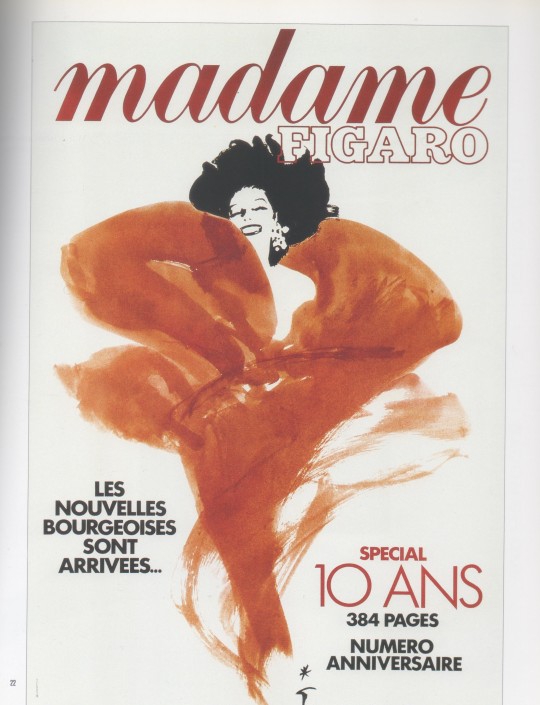
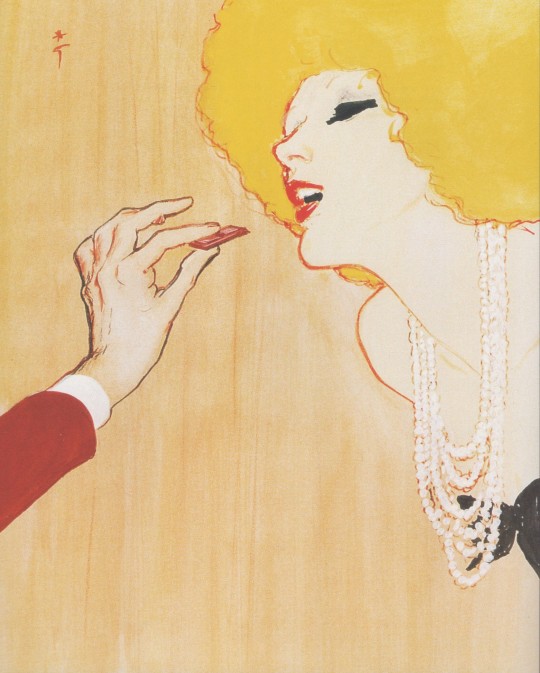




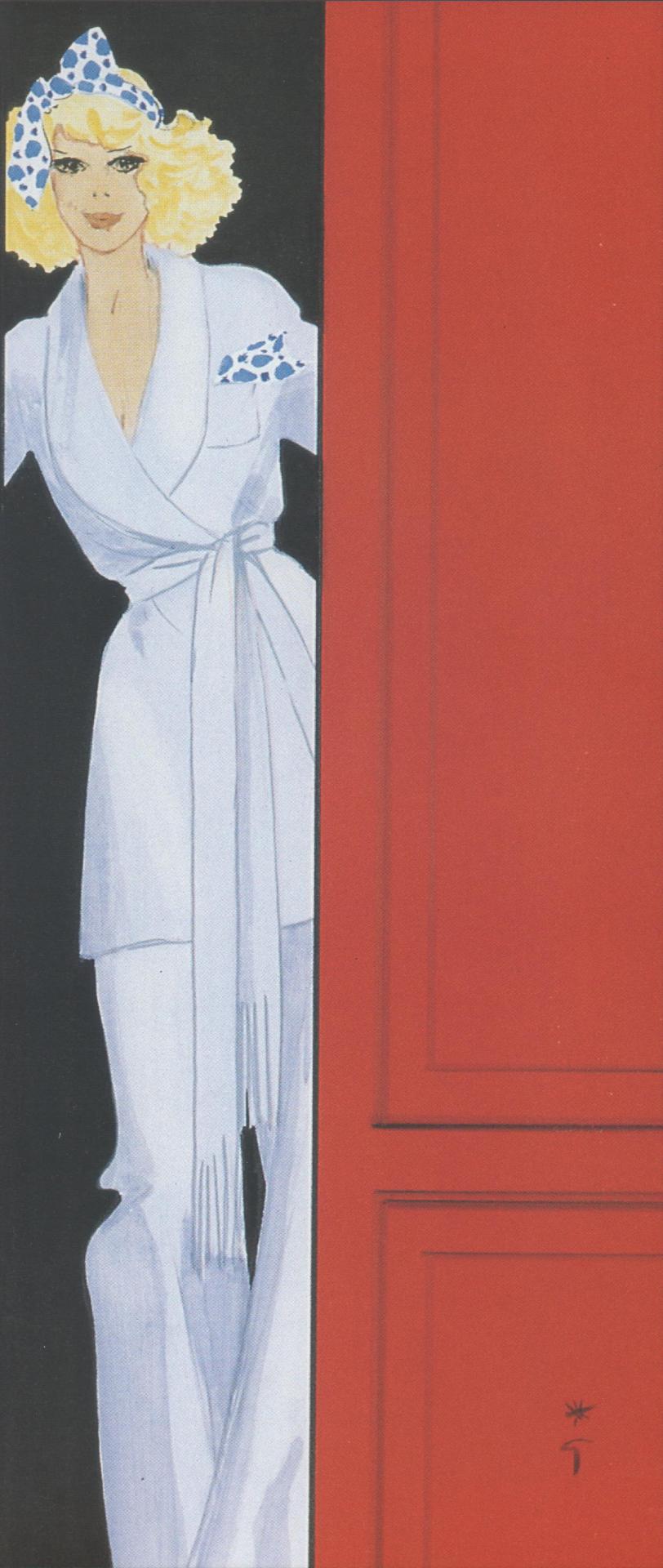
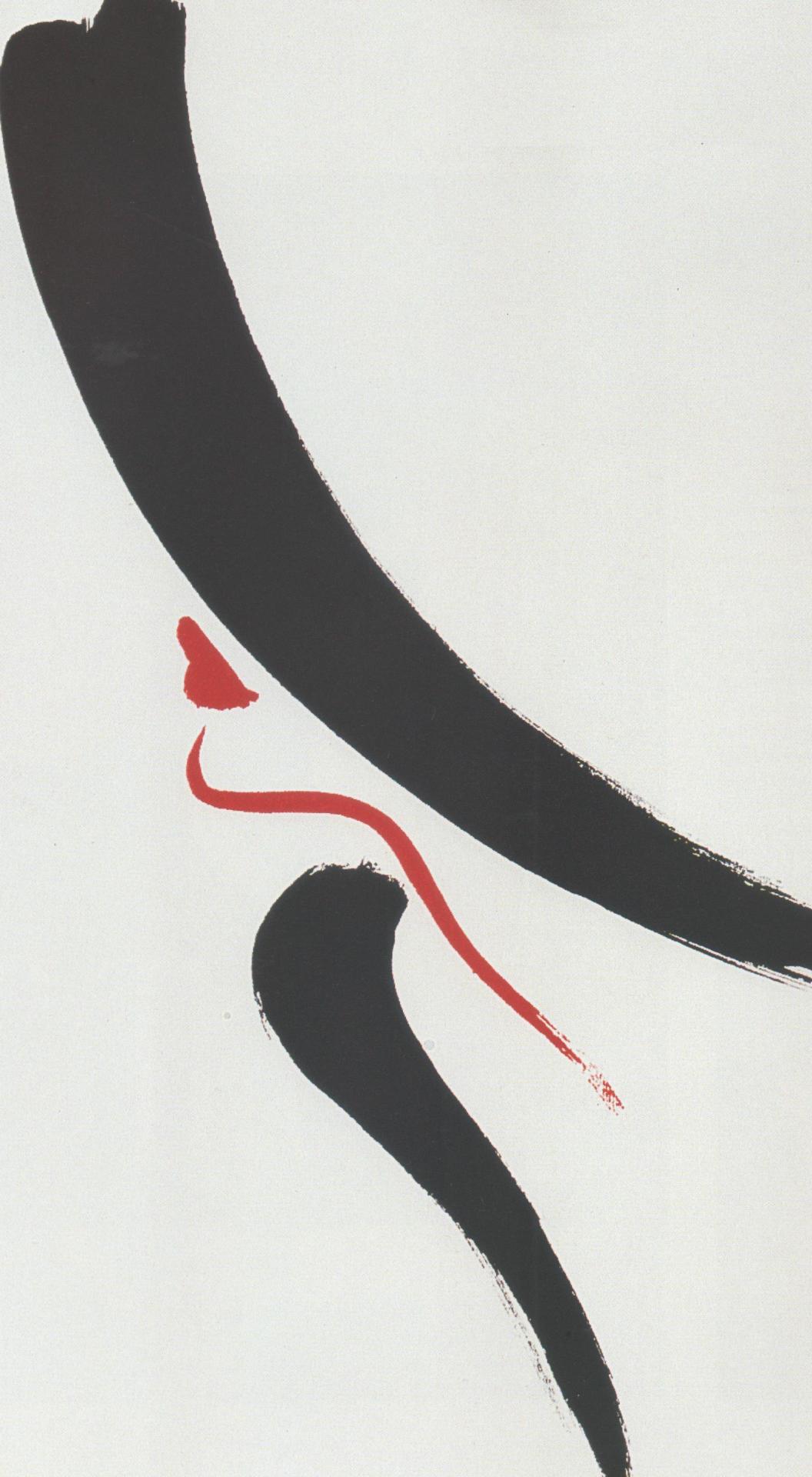


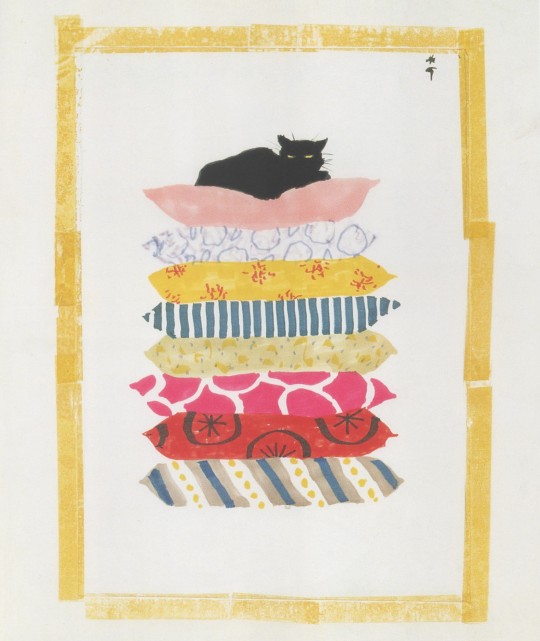
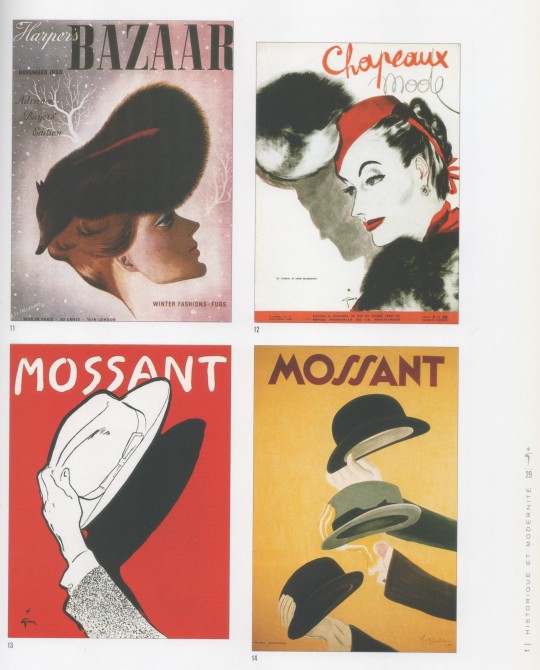
René Gruau L'art de la publicité The Art of Advertising
Réjane Bargiel, Sylvie Nissen
Le Cherche Midi, Paris 1999, 128 pages, 23x28cm, English/French, ISBN 9782862746951
euro 90,00
email if you want to buy [email protected]
Un G surmonté d'une étoile, griffe d'innombrables images appartenant à la mémoire collective. Des lèvres spirituelles qui attendent le baiser, des jambes sublimes jaillissant d'un nuage de plumes, des bras qui se tendent vers vous, des yeux splendidement expressifs qui plongent dans les vôtres. Voilà autant d'images emblématiques et célébrissimes de Gruau, affichiste et illustrateur qui constituent des repères incontournables de l'art publicitaire du XXe siècle. Autodidacte, nourri d'une culture classique et graphique à travers les travaux des grands peintres et illustrateurs du XIXe siècle, il a créé un style. Admirable synthèse graphique, son trait épuré parent de la calligraphie extrême-orientale, le chic de ses femmes mutines, toujours en mouvement symbolisent internationalement l'élégance. Depuis 1947, il imagine la publicité des parfums Dior, réinvente depuis plus de 30 ans l'affiche de music-hall pour le Bal du Moulin Rouge et le Lido. A 90 ans, René Gruau, très actif professionnellement symbolise à la fois l'héritage de l'art graphique et publicitaire du XIXe siècle et la modernité de la fin du XXe siècle. Gruau's trademark, the letter G crowned with a star, bas become a part of our collective memory. It has marked many memorable images: a spiritual set of lips just waiting to be kissed, a sublime pair of legs emerging from a cloud of feathers, arms that stretch out invitingly, splendidly expressive eyes like bottomless pools. Gruau's famous, emblematic images are at the core of twentieth-century advertising art. An autodidact thoroughly familiar with classical painting and graphic art, Gruau drew on the work of the great artists and illustrators of the nineteenth century in order to create his own unique style. In short, his work represents an admirable graphic synthesis. The purity of his line recalls Oriental calligraphy, while his chic, saucy women, always in motion, are an international symbol of elegance. He has been the creative force behind Dior perfume ads since 1947. For over 50 years he has reinvented the dancehall poster for the Moulin Rouge and the Lido. Still a working professional at 90 years old, Gruau symbolizes both the heritage of nineteenth-century modernism.
06/12/23
83 notes
·
View notes
Text

Marisol Escobar en 1963
Marisol Escobar (1930-2016) était une artiste vénézuélienne d'origine française qui a profondément marqué le monde de l'art en raison de son engagement féministe et de ses œuvres audacieuses, qui abordent des thèmes liés à l'identité féminine et à l'autonomisation des femmes. Elle est souvent reconnue pour ses sculptures qui réinventent les représentations traditionnelles du corps féminin, les transformant en figures puissantes, parfois animales, parfois mythologiques, mais toujours autonomes.
Escobar a été influencée par l'iconographie religieuse, mais aussi par des éléments de la culture populaire, de l'art classique et de l'avant-garde. Elle a notamment intégré des éléments de la culture hispanique et des traditions artistiques, tout en questionnant la place de la femme dans la société et dans l'histoire de l'art. Sa série de sculptures en métal et en résine, qui explore le corps féminin, a souvent été vue comme une tentative de rompre avec les stéréotypes traditionnels et de subvertir les attentes sociales.
L'art de Marisol a été exposé dans de nombreuses galeries de renom à travers le monde, dont le Museum of Modern Art de New York et la galerie de la Biennale de Venise. Sa démarche ne se limitait pas seulement à la création artistique mais visait aussi à intervenir dans le discours social et politique autour de la condition féminine, en remettant en question la domination masculine dans le monde de l'art, ainsi que les rôles traditionnels imposés aux femmes.
Ses œuvres sont donc à la fois un reflet de son époque et un moyen pour elle de redéfinir le rôle des femmes dans l'art et dans la société. Elle fait partie de ces artistes dont le travail continue d'inspirer les générations futures, notamment les féministes, qui trouvent dans son art une dénonciation de l'objectification du corps féminin et une revendication de l'indépendance des femmes. Malgré une reconnaissance initiale, Marisol est tombée dans l'oubli dans les années 1980. Elle est décédée le 30 avril 2016 à New York. Depuis, son œuvre a fait l'objet de réévaluations critiques, notamment en raison de son exploration des rôles de genre et de sa critique des stéréotypes féminins.
9 notes
·
View notes
Text
18+ ONLY Blog!! MINORS & AGELESS BLOGS DNI!!
Okay, so apparently I'm back to writing Desi!Reader, because I have yet another idea (again for Ghost). Reminder that Desi!Reader is gender neutral.

Simon pays for your henna when you get it done, he loves encouraging you showing off your culture. So whenever you say you're going to get the henna done, he gives you his credit card.
Sometimes, he comes along to the henna artist with you, just to give you company. He watches the henna artist intently, watching every stroke with the henna that the artist gives you, forming the intricate design you wanted.
You two talk as much as you can without moving and ruining the henna, talking about what dinner he'll cook (you got your henna done later in the day, so you can't cook dinner if you're usually the one to do so) and what you two have planned for tomorrow. You just enjoy his presence beside you, enjoying how he's always quick to try and understand your culture and allow you to practice your culture.
After the henna is done and your hands are wrapped protectively so that the henna hopefully doesn't get smudged, Simon doesn't even bat an eye at paying for your henna. He does it so easily, taking out his credit card and swiping it on the card reader. He gives the henna artist a nice tip, before walking out of the shop with you.
You thank him and then playfully asks if next time, he'll get henna done as well. Simon says he'll think about it, but no guarantees he'll want henna.
Next time you go to your henna artist, Simon is sitting in a nearby chair, getting his henna done.

Separator made by @une-femme-de-lettres
Reblogs are welcomed & appreciated! Asks are open, feel free to pop in and request something! (SFW requests only at this time, please and thank you.)
#simon ghost riley#simon riley#simon ghost#ghost cod#simon ghost riley x male reader#simon ghost riley x gender neutral reader#simon ghost riley x female reader#simon ghost riley x reader#simon riley x male reader#simon riley x gender neutral reader#simon riley x female reader#simon riley x reader#simon ghost x male reader#simon ghost x gender neutral reader#simon ghost x female reader#simon ghost x reader#ghost x male reader#ghost x gender neutral reader#ghost x female reader#ghost x reader#call of duty#cod#cod modern warefare 2#cod mwii#cod mw2#desi!reader#:)
36 notes
·
View notes
Text

Fleurs, ce n'est pas vous Qui avez fait de moi une artiste
Fleurs, je vous méprise Fleurs, je suis éprise De vos pétales peints d'aurore Qui sous la rosée se délavent, Desquels se déploient les ailes D'un printemps éphémère
Fleurs, je suis aux prises De vos parfums s'échappant Tels les soupirs d'un cœur amoureux, Tels des sanglots gardés en mémoire, Tel le chant enfermé dans la caisse D'un violon désenchanté Ô fleurs! Ô fleurs! Je suis captive Comme l'abeille sauvage En quête de pollen
Vous ai-je trop prisées Ou m'avez-vous prise en passant? Vous maudire, c'est à vous mots dire, C'est jeter des paroles dans le vent, C'est, dans un jardin d’insultes, Rassembler des graines disséminées Ô fleurs! Vous n'aurez pas le privilège D'être nommées mes ennemies
Fleurs, je vous abhorre Comme je hais les fées peuplant les bois Au lieu de rejoindre les anges au ciel
Fleurs, je vous exècre Car votre silencieux agrément Laisse s'incrémenter des excréments En sacrées montées sur l'excellent Ô fleurs! Vous me dégoûtez: Je ne peux ni vous regarder de haut, Ni baisser les yeux devant vous
Vous arracher serait vous cueillir Pour orner des têtes sans esprit, Pour décorer des maisons sans famille
Vous écraser serait vous coller À mes semelles adhérentes Et vous savoir toujours sur mes pas
Vous refuser serait me complaire Sans que le laid reçoive de complaintes, Tout comme vous, Tout comme vous, fleurs... Que faire alors?
Je vous prie de ne vous ouvrir Plus que pour ma chère maman Elle est un signe de la terre Dont l'index montre la voie vers vous Quand je vous prive de toucher
Elle: « Penche-toi pour sentir les fleurs! » Moi: « Lève le bras pour frôler les cimes! » Elle: « Quand vas-tu arroser les fleurs? » Moi: « Baigne-toi plutôt dans l'azur! » Elle: « Quel bon garçon t'offrira des fleurs? » Moi: « Même pas devant mon cercueil! » Pour qui, fleurs, préférez-vous pousser?
Pour moi, le ciel est champ de fleurs, Sol immuable où les étoiles, en filant, Viennent ancrer leurs racines
Brillant de leur propre lumière, Les astres n'ont pas besoin de soleil Et ne se fanent pas en octobre
Ainsi, mes désirs d'éternité, Dont je suis l'insecte prisonnier, Telle une graine de pissenlit me portent Vers des ruches hors de ma portée... Là éclot l'éclat de génie
-Poésie: "Pourquoi je déteste les fleurs", à lire dans "Genèse d'une femme" par Marine Mariposa, disponible gratuitement sur https://sites.google.com/view/papillondusublime/gen%C3%A8se-dune-femme -Image: "Der Gartenfreund", Carl Spitzweg
#poetry#poesie#french literature#marine mariposa#fleurs#flowers#artiste#abeille#jardin#fairies#maman#mom#mother#fields#starry sky#carl spitzweg
7 notes
·
View notes
Text
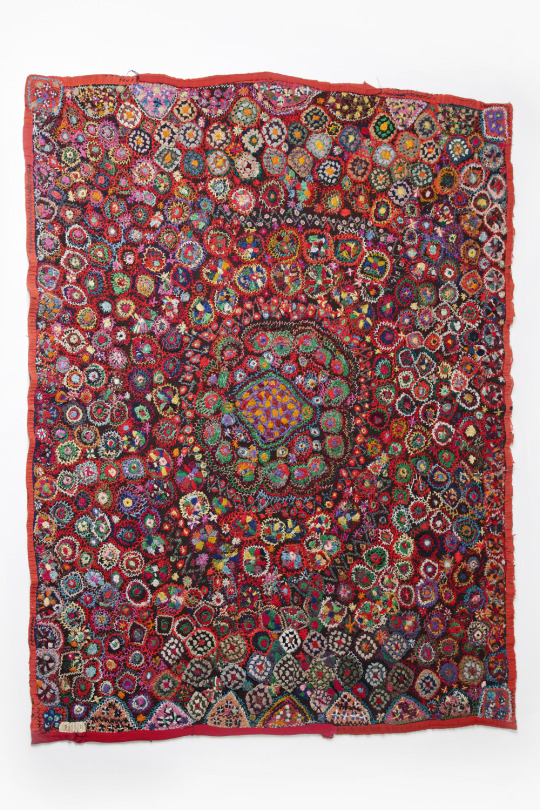
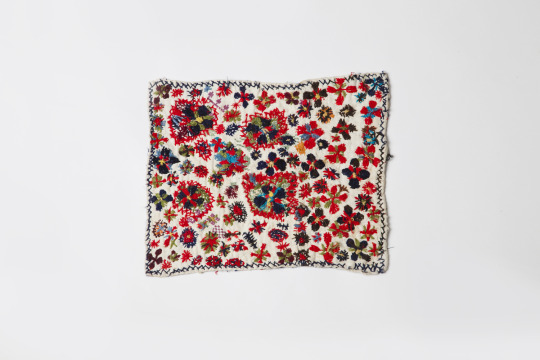
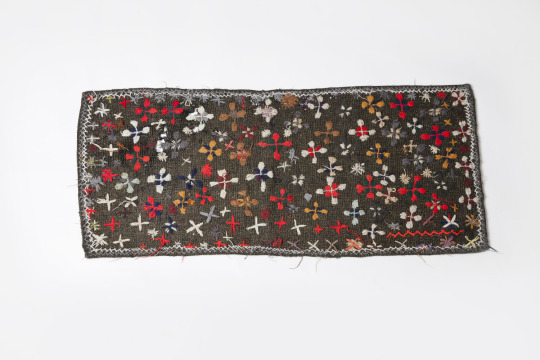
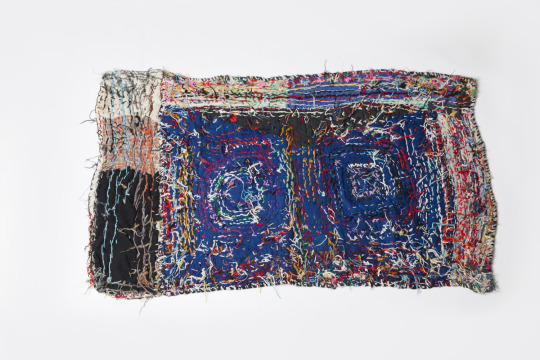

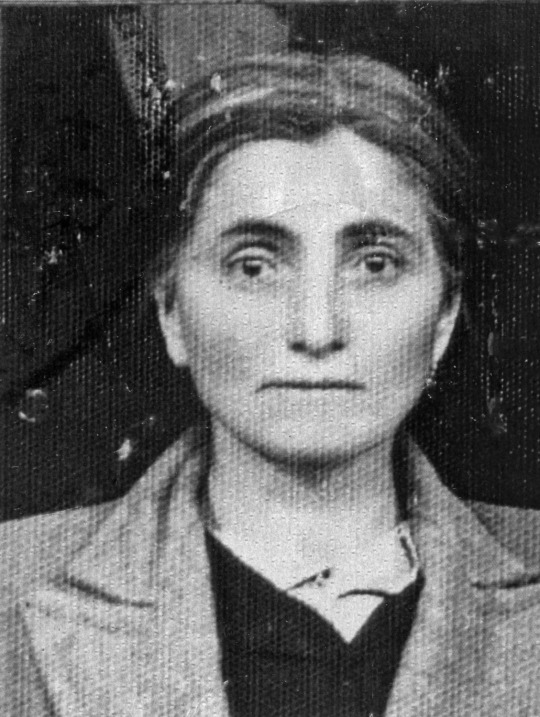
Hripsimeh Sarkissian (1908 — 2000), Armenian textile artist from Turkey.
Born into a family involved in trading carpets among other things, in a region where textile making was a common activity especially among women, Hripsimeh Sarkissian had been familiar with textile designs and techniques since her childhood. In 1915 H. Sarkissian, just a child, survived the Armenian Genocide. She lost most of her relatives, including her father and siblings during the atrocities. Then, almost twenty years later, in 1938, she survived the Dersim Massacre, which was a military campaign led against the non-Turkish and non-Sunni communities in the area, this time with her husband and children. Her family was one of the few Armenian families that escaped the executions in their village, forced to leave their homes with thousands of other people. For nearly ten years the family lived in arduous conditions. Only after 1947, when the settlement law in Turkey was amended to give the right to displaced communities to return to their homes, they moved to Elazığ, a city neighbouring their native Dersim.
74 notes
·
View notes
Text
Oedipus and the Sphinx, Gustave Moreau, 1864

Edipo y la Esfinge, Gustave Moreau, 1864
(English / Español)
Gustave Moreau's "Oedipus and the Sphinx" (1864) captures one of the most iconic moments in Greek mythology: the tense confrontation between Oedipus and the enigmatic Sphinx. This encounter, famously recounted in Sophocles' Oedipus Rex, takes place on Oedipus' journey to Thebes, where the Sphinx blocks his path, posing a deadly riddle: "What walks on four legs in the morning, two in the afternoon and three at night?" Oedipus answers correctly: "Man", who crawls as a baby, walks upright as an adult and uses a cane in old age. The Sphinx, shocked by his answer, takes her own life, leaving Oedipus to continue on his tragic path to becoming the king of Thebes-and, unbeknownst to him, his mother's husband.
Unlike earlier versions by artists such as Jean-Auguste-Dominique Ingres, Moreau's interpretation emphasises the power dynamic between the two figures, presenting the Sphinx as a more aggressive and sensual creature that is already grabbing Oedipus, clawing at his chest. The intense gaze between the two figures adds an unsettling tension to the scene. Moreau's Sphinx, part woman, part lion and part bird, embodies the menacing power of the mythological femme fatale, a theme commonly explored in 19th-century Symbolist art.
----------------------------------------------------------------------------
"Edipo y la Esfinge" (1864) de Gustave Moreau captura uno de los momentos más icónicos de la mitología griega: la tensa confrontación entre Edipo y la enigmática Esfinge. Este encuentro, famoso por ser relatado en Edipo Rey de Sófocles, tiene lugar en el viaje de Edipo a Tebas, donde la Esfinge bloquea su camino, planteando un enigma mortal: "¿Qué camina sobre cuatro patas por la mañana, dos por la tarde y tres por la noche?" Edipo responde correctamente: "El hombre", quien gatea de bebé, camina erguido de adulto y usa un bastón en la vejez. La Esfinge, asombrada por su respuesta, se quita la vida, dejando a Edipo continuar su trágico camino hacia convertirse en el rey de Tebas—y, sin saberlo, en el esposo de su madre.
A diferencia de versiones anteriores de artistas como Jean-Auguste-Dominique Ingres, la interpretación de Moreau enfatiza la dinámica de poder entre las dos figuras, presentando a la Esfinge como una criatura más agresiva y sensual que ya está agarrando a Edipo, arañando su pecho. La intensa mirada entre los dos personajes añade una tensión inquietante a la escena. La Esfinge de Moreau, parte mujer, parte león y parte ave, encarna el poder amenazante de la femme fatale mitológica, un tema comúnmente explorado en el arte simbolista del siglo XIX.
Fuente: Los Secretos del Arte
12 notes
·
View notes